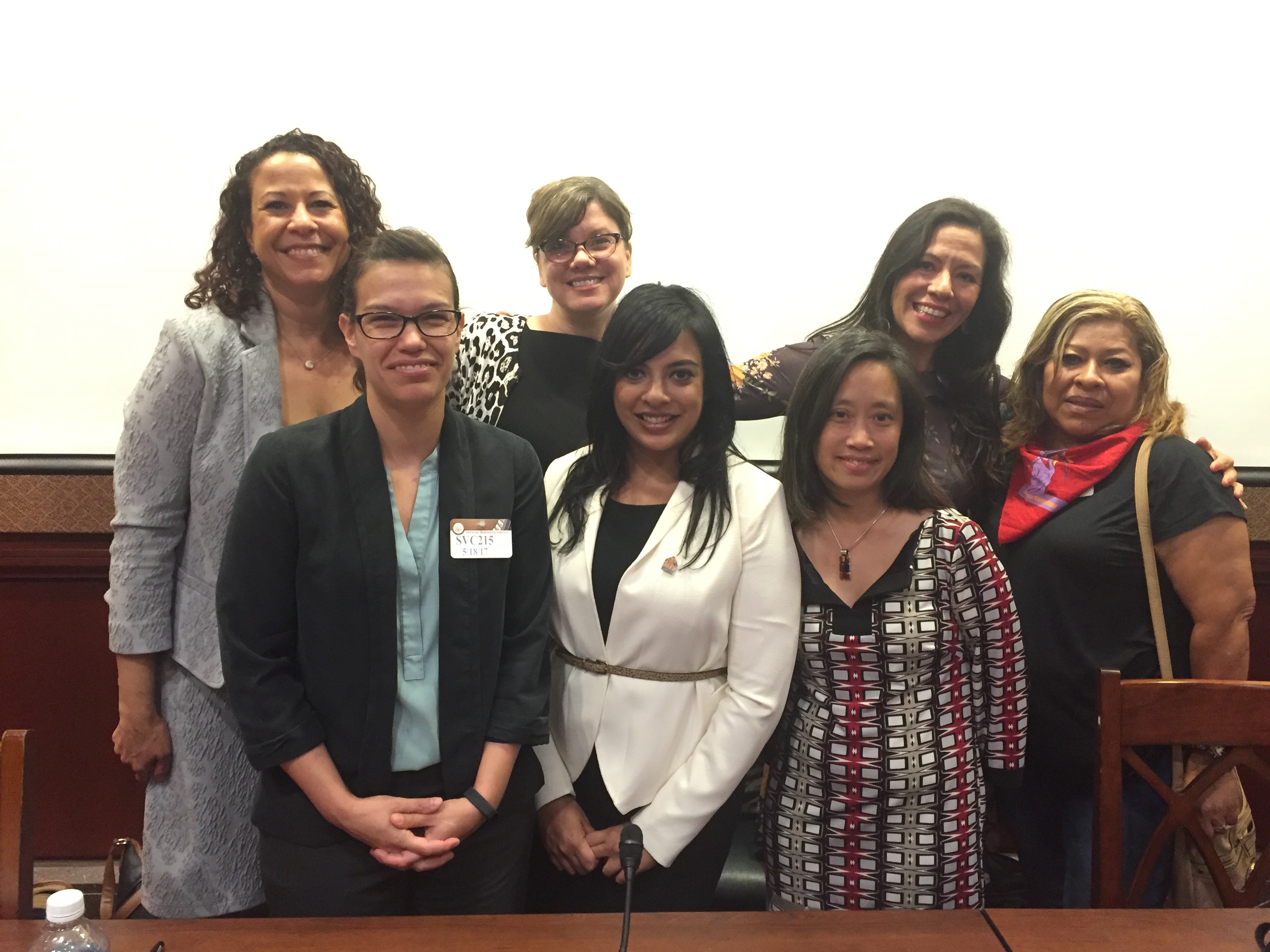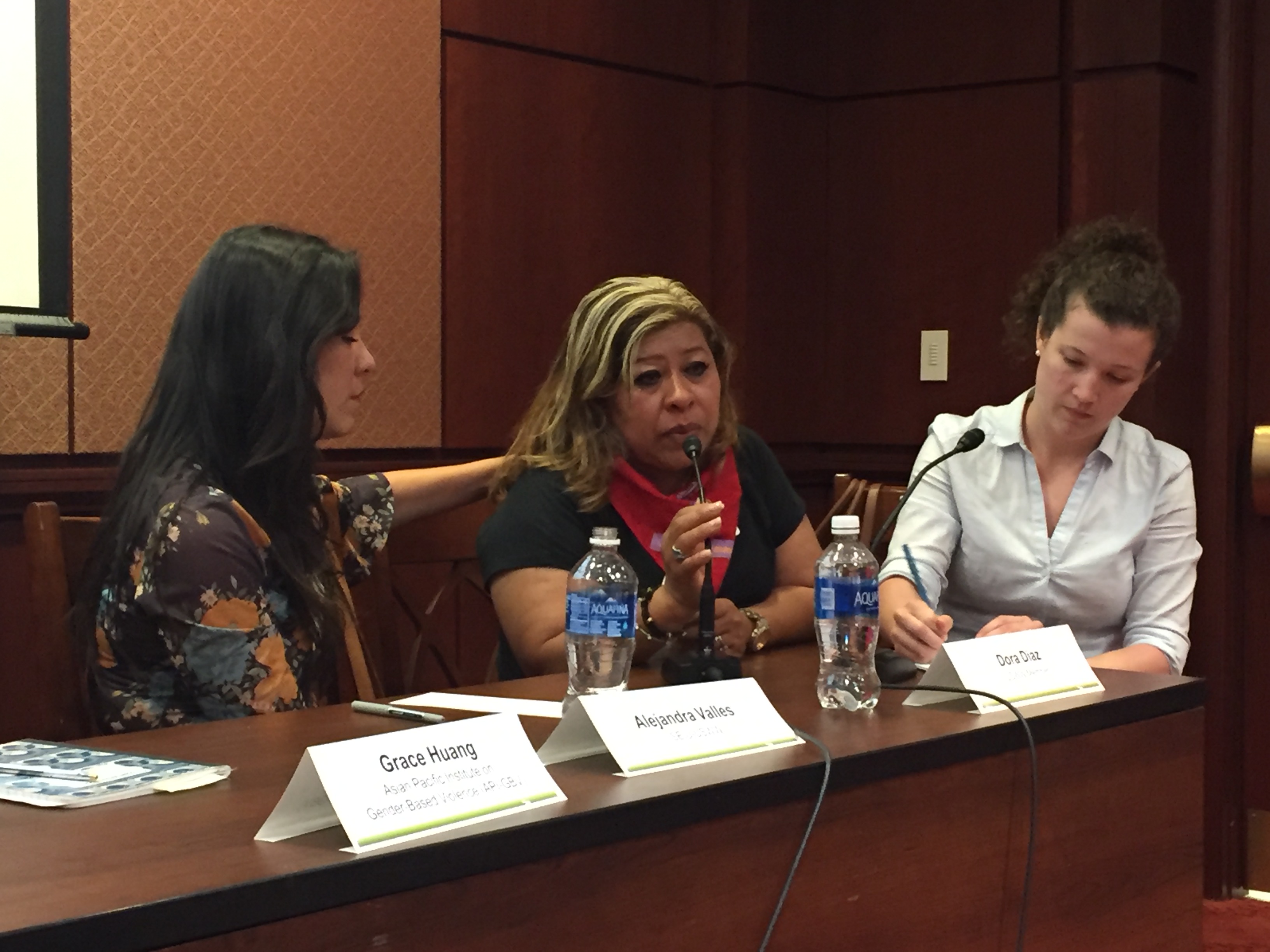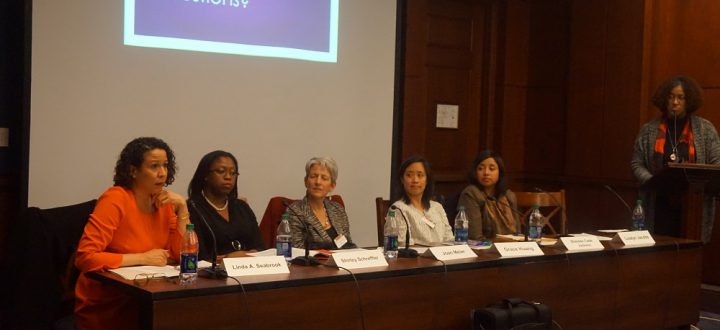Fostering Safer Workplaces

Futures Without Violence along with partners Asian Pacific Institute on Gender-Based Violence (API-GBV), United Way Worldwide, Casa de Esperanza: National Latin@ Network, National Employment Law Project, The Institute for Women’s Policy Research, Ujima: The National Center on Violence Against Women in the Black Community, and the National Network to End Domestic Violence (NNEDV) conducted a Congressional Briefing on May 18, 2017, to discuss the impacts of domestic and sexual violence, stalking, and harassment on workplaces, and share the innovative prevention and response strategies developed through, and in partnership with, Workplaces Respond to Domestic and Sexual Violence: A National Resource Center.
Panelists offered worker, employer, and advocate perspectives on ways to create more supportive prevention-focused workplaces for workers experiencing violence in order to make safer workplaces for all.
Dora Diaz, a janitor worker-advocate, and promotora, bravely recounted her survival of a sexual assault perpetuated by a supervisor during a shift:
I went to my employer to explain that I had been assaulted, and the reaction was to fire me.
 Ms. Diaz was accompanied by Alejandra Valles, Secretary-Treasurer and Chief of Staff of SEIU – United Service Workers West, who told the story of how survivors of sexual assault in the janitorial industry, as revealed in the documentary Rape on the Night Shift, converted their tragedies into triumphs and successfully compelled the State of California to enhance training and accountability for gender-based violence in the janitorial industry.
Ms. Diaz was accompanied by Alejandra Valles, Secretary-Treasurer and Chief of Staff of SEIU – United Service Workers West, who told the story of how survivors of sexual assault in the janitorial industry, as revealed in the documentary Rape on the Night Shift, converted their tragedies into triumphs and successfully compelled the State of California to enhance training and accountability for gender-based violence in the janitorial industry.
Sarah Gonzalez Bocinski of the Institute for Women’s Policy Research provided startling data on how gender-based violence costs businesses hundreds of millions annually, including $727.8 million in lost productivity, and 7.9 million paid days of work lost. Leslie Hott of University of Maryland-St. Joseph’s Medical Center, which lost two workers in domestic violence-related killings, provided concrete examples of appropriate employer responses and prevention strategies. Advocates Marium Durrani of the NNEDV and Grace Huang of API-GBV offered additional insight on the impacts of gender-based violence on victims’ economic security, particularly that of immigrant and low-wage workers.
The briefing was graciously supported by an Honorary Co-Host Committee: Senator Patty Murray (D-WA), Congresswoman Katherine Clark (D-MA), Congresswoman Pramila Jayapal (D-WA), Congresswoman Gwen Moore (D-WI), and Congresswoman Lucille Roybal-Allard (D-CA).
For more highlights of the event, please take a look at our Storify.
For more information on Workplaces Respond, please visit our newly-redesigned website at www.workplacesrespond.org.




